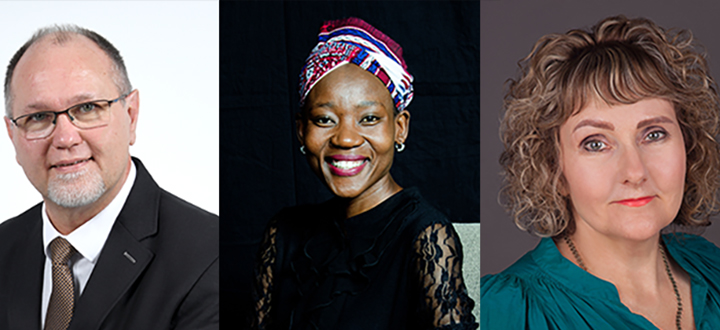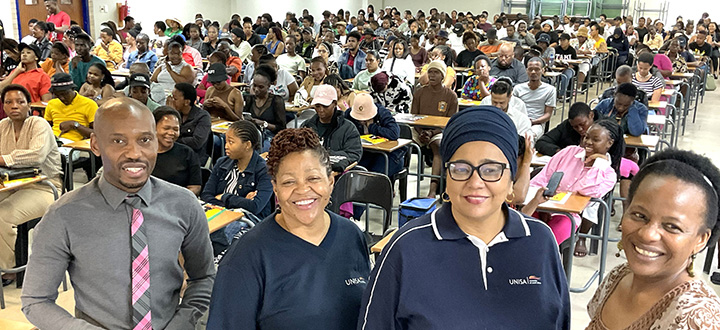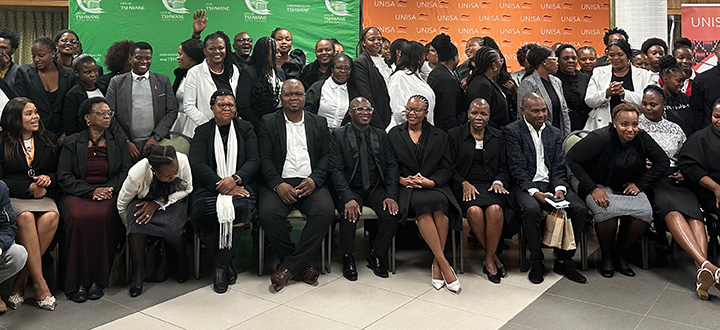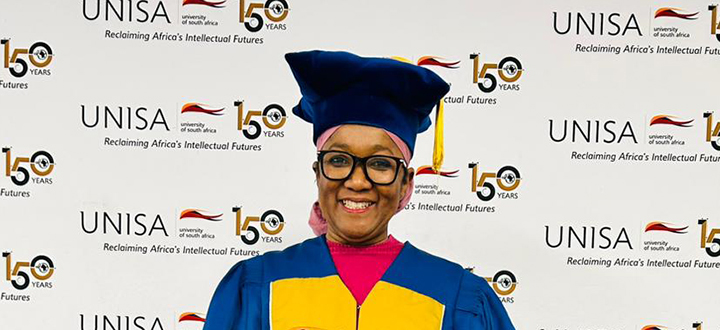Department of Science and Technology Education
Prof Mpine Makoe's perspective on mental health and wellness

Prof Mpine Makoe, College of Education (CEDU) Acting Executive Dean
Frequently in our everyday social interactions we get to be asked the question of ‘how are you?’ which is responded with ‘I am fine’. An assumption is that the ‘I am fine’ response is a flight path in the state of the mental health and wellness to cope with the stresses of life.
Professor Mpine Makoe, the College of Education's Acting Executive Dean, gave a presentation on mental health and wellness, a topic that has gained popularity and importance. She had previously accepted an invitation from the Department of Science and Technology Education's mental health and wellness portfolio (DeSTE). With COVID-19 and, in particular, the fact that UNISA works in the field of remote education, the relevance of her most recent visit and the conversations on the subject had some significance.
It was up to Prof. Makoe to explain how "how fine" a person is and how that affects their life. Her introduction's explanation of the idea of mental health and wellness, which she gleaned from literature, became a significant component of her presentation, and took centre stage. She made the point that an individual's emotional, psychological, and social welfare are all intertwined to form mental health and wellness. She widened the concept to fit the everyday utility of mental health, stating that it is a condition that influences our thoughts, feelings, and actions. With what has been said thus far, one may assume that a "I am fine" response will do for the time being.
She continued by using research to support her claim that academics in university settings are more likely than any other group to suffer from stress-related ailments. She provided a historical critique of collective occurrences that we were able to focus on. She discussed outsourcing of labour, private vs. public demonstrations, mergers, uncertainty, and instability, demands for adjustments to work context, rising fees, neoliberalism paradigm, and growing fees in her study of the collective occurrences.
The phrase "I am fine" was interpreted by colleagues to mean that they were under stress from their jobs. She named heavy workloads, impractical performance evaluation procedures, the academic job market's intense competition, job security, the casualization of academia, administrative responsibilities, and insufficient organizational support. Prof. Makoe was able to pinpoint subtle variances related to the "I am fine" notion inside UNISA. They included being overworked and overextended, having deadlines that were less rigorous and never-ending, lacking organizational assistance, teaching classes with thousands of students, and being denied time for study. She then gave a few practical tools, including easy-to-use operating systems, flexible work schedules to manage workload, and the ability to hire extra staff.
Prof. Makoe elaborated on the problem of workload in relation to DeSTE by pointing out that it also affects mental health and wellness. She saw the discrepancy between the number of modules and the staff component and estimated the optimal staff component numbers for the DeSTE student population. The same students, she added, also struggle with wellness and mental health challenges. She summarized the lecture by arguing that a "whole institution wellness" strategy is crucial. She advised adding a third aspect to the tripod of mental health and wellness features: education and wellness, support and training, as well as lifestyle enhancers. From which the DeSTE staff may draw inspiration for their ability to say, "I am fine".
Food for Thought: How do we support our academics?
#WrittenbyMahlakoChuene
#MentalHealthAndWellness
Publish date: 2023-04-14 00:00:00.0

 Unisa shows that developing countries are equal partners in research management and administration capacity development
Unisa shows that developing countries are equal partners in research management and administration capacity development
 Unisa KZN Career Fair bridges the gap between students and employers
Unisa KZN Career Fair bridges the gap between students and employers
 Unisa academics join hands to celebrate World Social Work Day
Unisa academics join hands to celebrate World Social Work Day
 Unisa community engagement initiative targets school underperformance
Unisa community engagement initiative targets school underperformance
 Library tour introduces learners to the wonderful world of Unisa
Library tour introduces learners to the wonderful world of Unisa